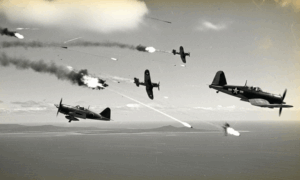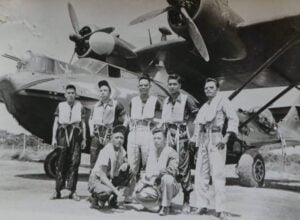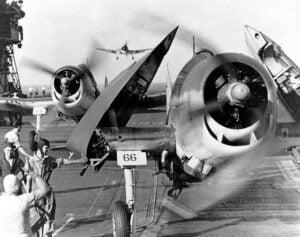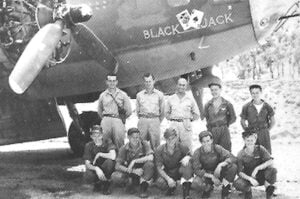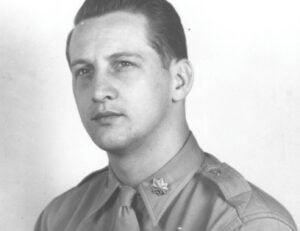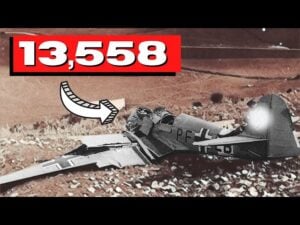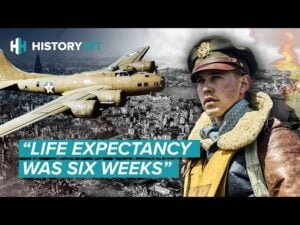The Astonishing WWII Story of the Pilot Who Won While Flying a Burning Plane
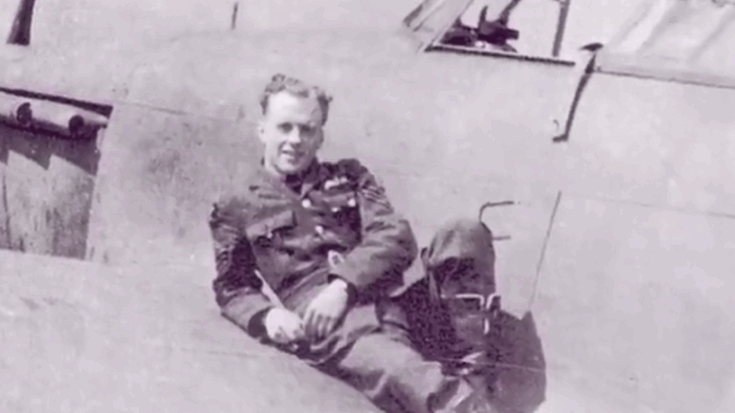
Mark Felton Productions / YouTube
Into the Sky Over London
September 15, 1940. High above London, at twenty thousand feet, Ray Holmes gripped the controls of his Hawker Hurricane. Sweat ran under his oxygen mask as he scanned the sky. Engines roared around him, drowning out almost everything. Below, the city burned, and chaos spread through its streets. The Battle of Britain had reached a dangerous height. Hurricanes and Spitfires clashed with German bombers in a deadly dance of courage and destruction.
Holmes spotted a German Dornier breaking formation, heading low and fast toward Buckingham Palace. His heart pounded. “Not on my watch,” he muttered. He banked sharply and dived after the bomber. Tracer bullets whizzed past his cockpit. His guns jammed. At that moment, a shell struck his plane. Flames erupted along the right wing, smoke filled the cockpit, and heat seared his gloves. Every instinct screamed to bail out. But below him, London’s rooftops, streets, and the glinting dome of the palace were in danger. He made a decision no manual could prepare a pilot for: he would ram the bomber.
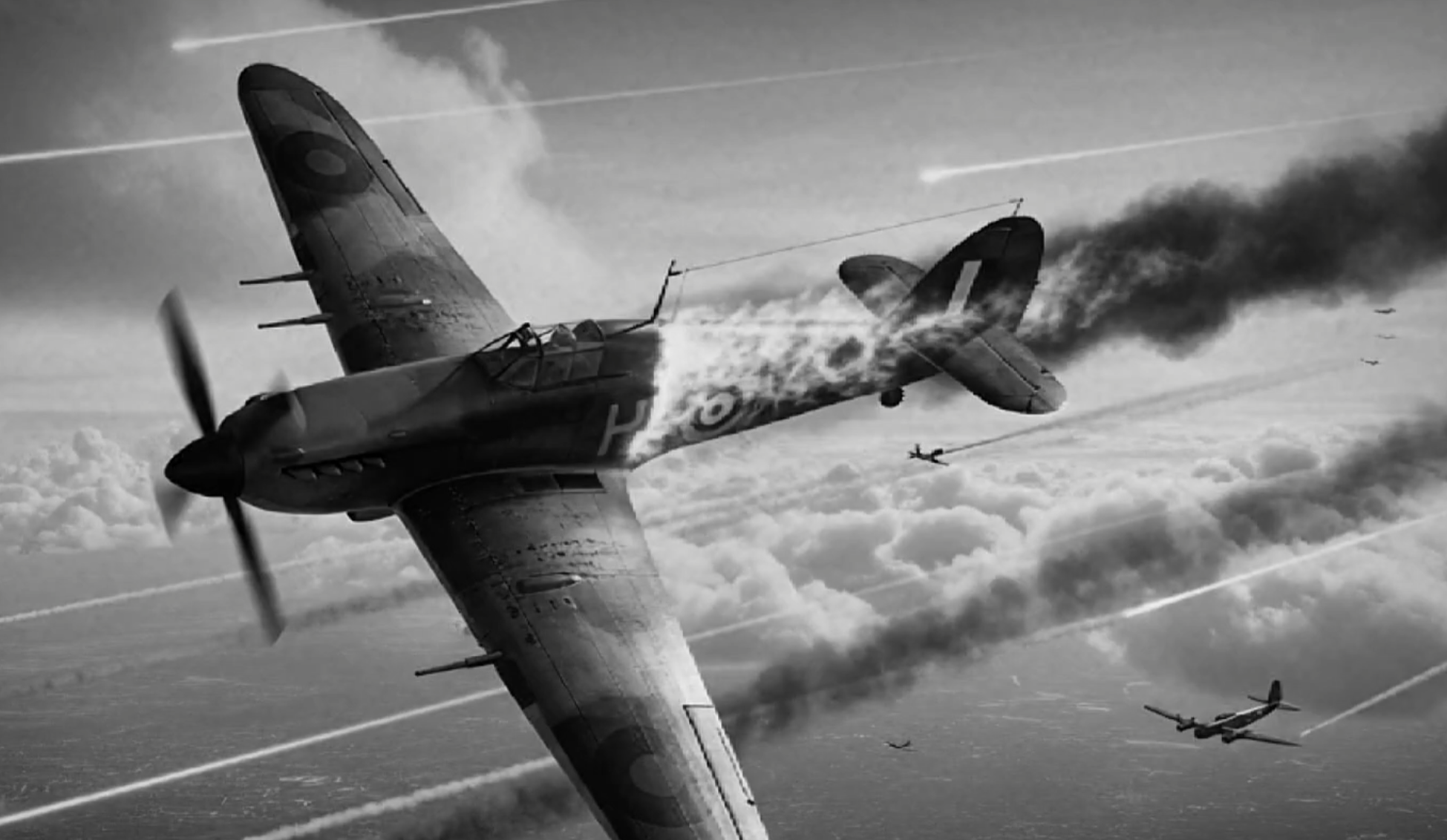
Collision and Survival
Holmes pushed his throttle to the limit. His Hurricane groaned as flames licked its fuselage. Metal met metal in a violent, fiery collision. The Dornier disintegrated, its wreckage raining near Victoria Station. Holmes’ plane tore apart, the tail gone, the nose burning, spinning through the air. He yanked the canopy open and jumped, his parachute barely opening. Below, London spun in flames and smoke, while faint cheers echoed from the streets.
He landed near Buckingham Palace Road, bruised and dazed, his parachute tangled around a lamppost. Civilians rushed over, praising him for stopping the bomber. Police and medics helped him to safety. Hours later, in an operations tent at RAF Hendon, word spread. A twenty-nine-year-old pilot had destroyed a bomber midair. His squadron was stunned. Holmes’ act seemed suicidal, but to those who flew alongside him, it was deliberate courage. Trained as a journalist before the war, he joined the Royal Air Force out of duty. He often wrote in his flight logs about fear and humanity. That day, he put theory into action. Newspapers later called him the “flaming knight of London,” and fragments of his plane became relics for civilians.
The Weight of Duty
Holmes never sought fame. When asked why he hadn’t bailed out sooner, he replied simply: “Because someone had to stop that bomber.” Every pilot knew the stakes. Every second counted. German records later confirmed the bomber was on course for Buckingham Palace, its crew none surviving the collision. Parts of Holmes’ Hurricane were found across central London, embedded in pavements and even a taxi. For many, the wreckage was proof that one man had been willing to risk everything to defend others.
Despite the legend, the war did not spare Holmes. He healed quickly and returned to flight duty, receiving a new Hurricane with a small flame painted on its nose as a tribute. He continued flying combat sorties, escorting convoys and training recruits. Yet the memory of that fiery collision never left him. He learned that courage was not the absence of fear, but the act of flying through it. The public celebrated him as a hero, but Holmes felt lucky rather than heroic.
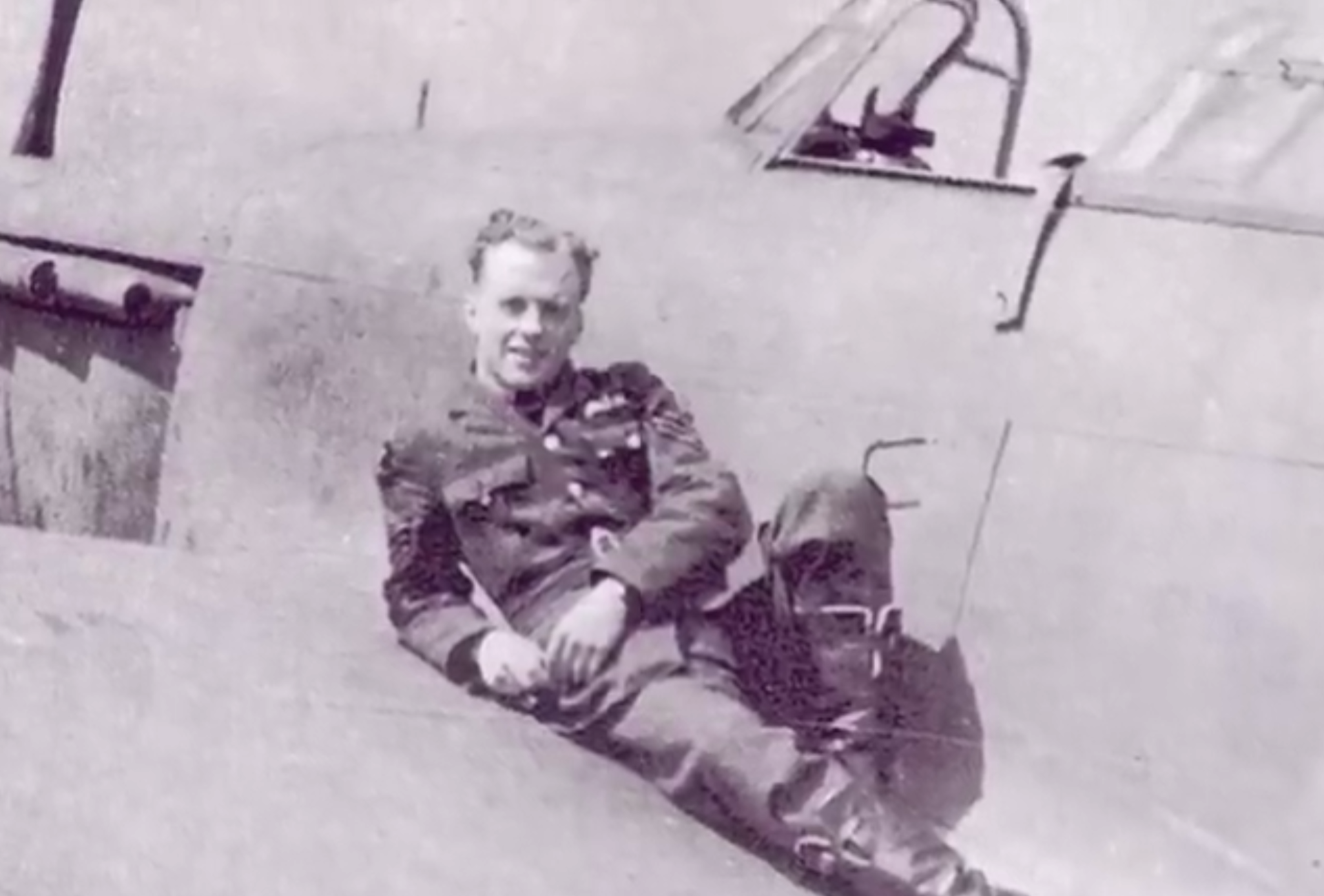
Facing Fate Again
One gray October morning, he took off in a Supermarine Spitfire carrying intelligence dispatches. Clouds hung low, cold, and heavy. Halfway through the flight, a ruptured fuel line caused the engine to fail. Smoke curled through the cockpit. Holmes scanned the ground below—a village with homes, barns, and children playing. Seconds counted. He steered the failing plane away from the village, pushing the aircraft to its limits. The Spitfire crashed into a field outside the village, shattering its fuselage. Once again, fate spared him. Covered in soot, Holmes crawled free, whispering to himself, “Not again. Not like this.”
Ray Holmes’ story is remembered for its courage, quick thinking, and unwavering sense of duty. Though flames consumed planes and battles raged across the skies of Britain, his actions saved lives and became part of national memory, reminding all that heroism often comes at the edge of danger.













